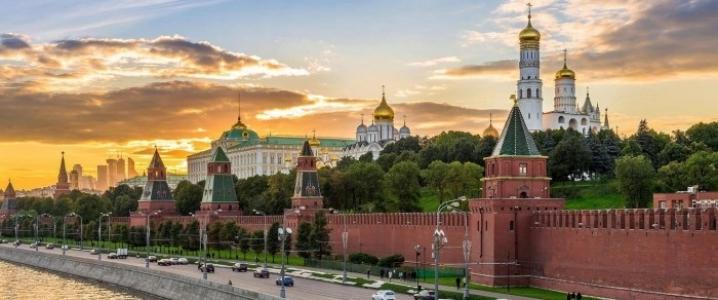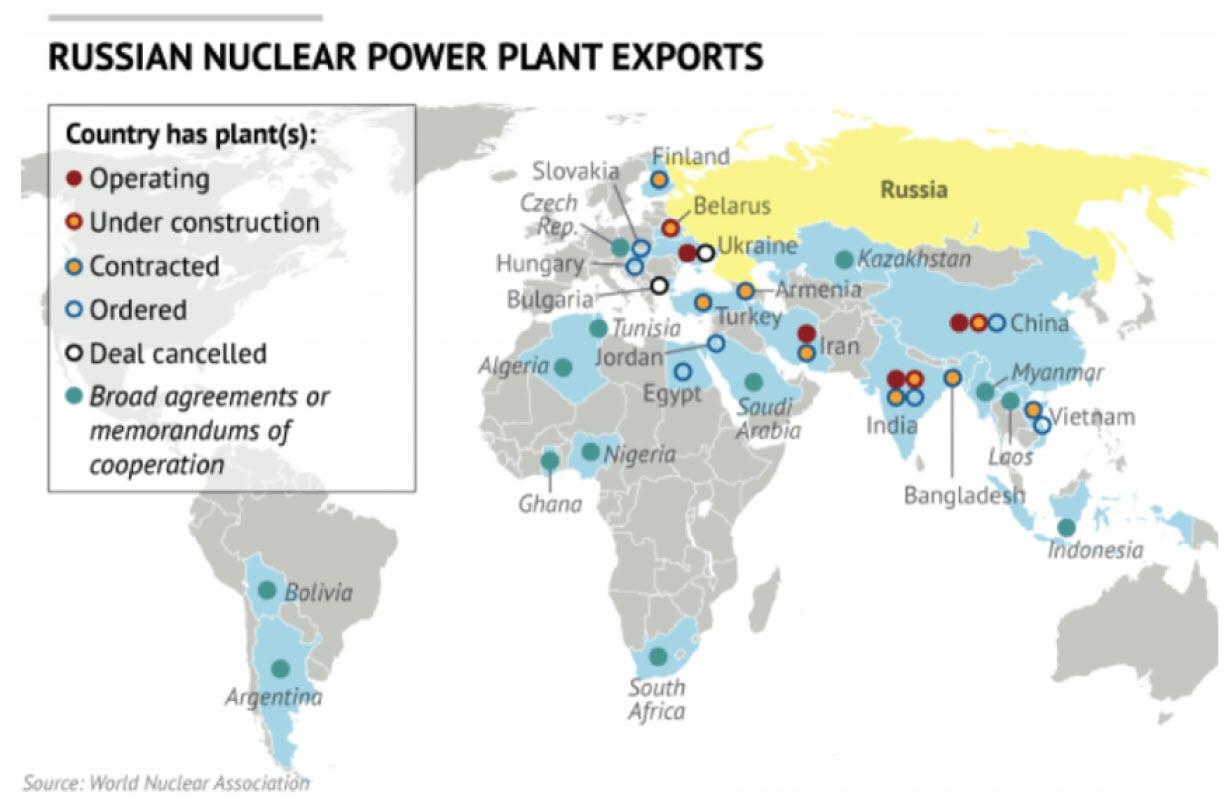Africa’s economic potential is enormous: the continent contains significant mineral and energy deposits, a young and growing population, and an underdeveloped energy sector desperately in need of investment. Approximately 640 million people, or two-thirds of the entire populace, don’t have access to electricity. According to the African Development Bank, energy poverty reduces GDP growth by 4 percent every year. Russia’s energy industry, in comparison, is booming. Its state-run nuclear energy company Rosatom has an order book of 34 reactors in 12 countries worth $300 billion. Recently, Moscow has set its eyes on Africa where most states have either already struck a deal with the Kremlin or are considering one.
Africa’s long march forward
Currently, only South Africa is operating a commercial nuclear power plant with plans on the table to expand capacity. Another ten states are in different stages of planning and negotiations including Algeria, Egypt, Ghana, Kenya, Namibia, Nigeria, Tanzania, Tunisia, Uganda, and Zambia.
(Click to enlarge)
Energy poverty is a significant problem in the world’s least developed continent. The lack of access to a reliable and affordable source of energy is a severe impediment to economic development. Although the costs of renewables have decreased significantly over the years, technical and geographic limitations impede the rapid rollout of solar and wind energy. Also, Africa is urbanizing much quicker than the rest of the world where cities are expanding by 8 percent every year compared to 2 percent globally - which puts even more pressure on the existing energy systems.
The Russian deal is particularly appealing to countries lacking nuclear knowhow due to Moscow’s comprehensive offer regarding financing, construction, and operation of the facilities. Currently, Rosatom is experimenting with a contract known as ‘build-own-operate’ under which ownership of the plant remains in Russian hands while energy is sold to the host country. This new type of contract is appealing to several African states who lack the means to finance construction. In some instances, the mineral resources of host countries could function as a deposit for any liability comparable to Moscow’s ‘arms-for-platinum’ deal with Zimbabwe worth $3 billion.
The Russian deal is also attractive for countries lacking the necessary infrastructure because Moscow takes back nuclear waste which means that host countries don't have to worry about storage. From a security point of view, this could alleviate concerns regarding weapons production through plutonium reprocessing or threats from non-state actors.
Russia’s strategy
Moscow’s is reusing its successful Middle East strategy comprised of diplomacy, energy, and security.The Kremlin has presented itself as a ‘clean’ and honest broker lacking the colonial background of most Western countries. Africa’s relative instability and need for cheap energy makes it a good match for Russia which is looking to expand its global presence and find new markets for critical industries such as energy.
From Moscow’s perspective, sanctions and deteriorated relations with the West have increased the need to improve its relations with other parts of the world. Africa is not a new frontier for the Kremlin, which maintained diplomatic and military contact with the continent during the Cold War to counterbalance the U.S. This time, however, Moscow is not driven by ideology but by the need to increase influence and its position as a global power.
Nuclear energy is an obvious option as Russia is a global leader in nuclear technology. The country processes 7 percent of the world’s uranium production, 20 percent of uranium conversion, 45 percent of uranium enrichment, and 25 percent of the global nuclear power plant construction activities. Providing the necessary technology to Africa serves another purpose besides increasing influence and revenue for the state’s coffers. The continent is also home to some of the world’s largest uranium deposits in Malawi, Niger, and South Africa. Access to these resources is essential if Moscow’s wants to maintain its position globally.
A way forward or unnecessary risks?
Without a doubt, Africa is in desperate need of electricity to develop and industrialize. However, according to some critics, Russia's nuclear involvement in unstable countries could become a global security threat due to those countries’ weak institutions and unstable governments. Moscow’s nuclear strategy will be tested after the first power plants are completed in developing countries in Africa and Asia. The lifespan of these facilities spans decades and they require an adequate and comprehensive approach in order to provide electricity for millions that is both safe and reliable.


No comments:
Post a Comment
Note: Only a member of this blog may post a comment.